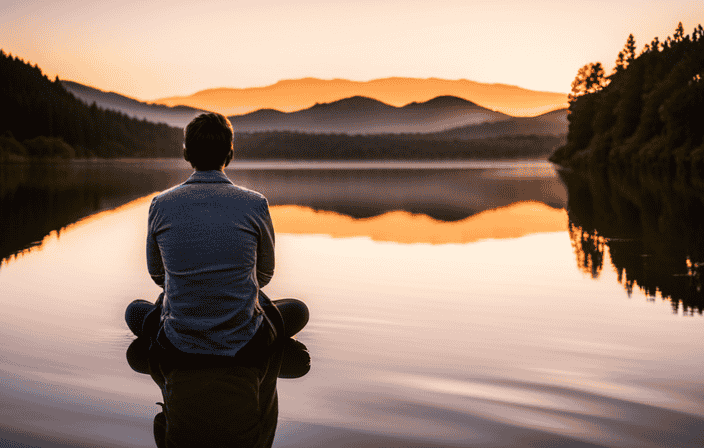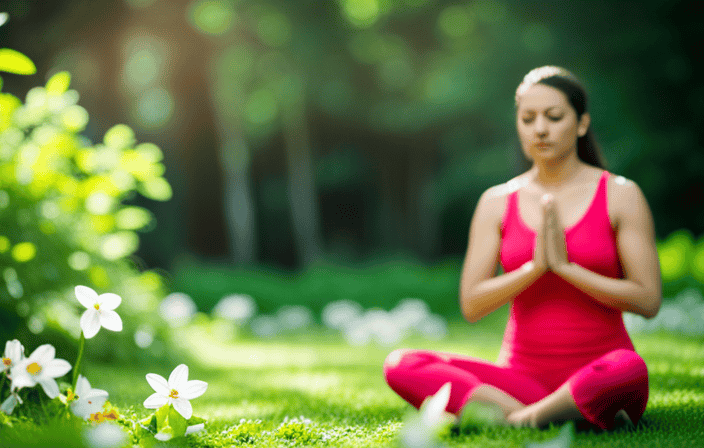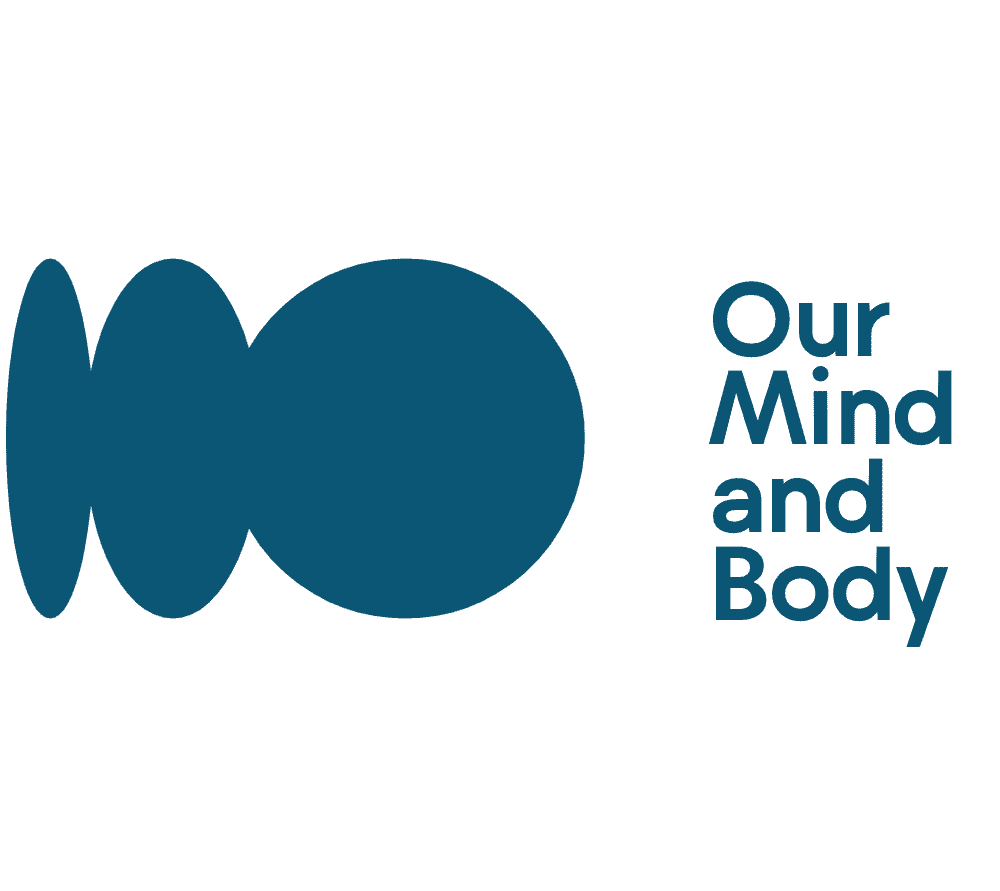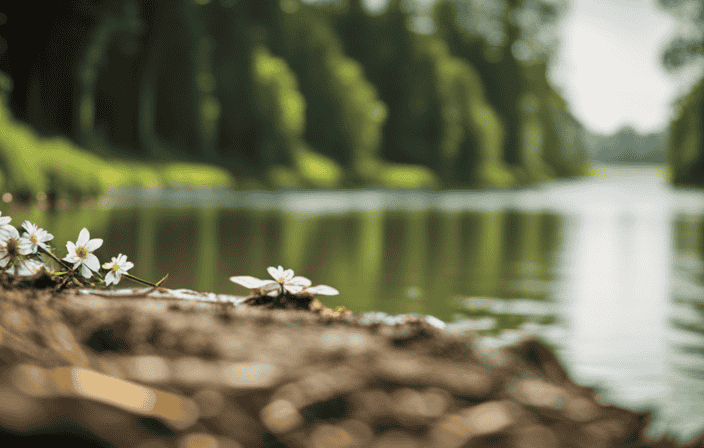Personal Growth
Unlock Your Potential: The Power of Reflective Thinking for Personal Growth and Success

Reflective thinking is a valuable tool that enables us to pause and evaluate our lives impartially. It can provide us with a deeper understanding of ourselves, our relationships with others, and our surroundings. Recent studies have shown that individuals who engage in self-reflection are 33% more likely to accomplish their objectives compared to those who do not. Therefore, if you aim to make significant advancements in life, prioritizing the development of reflective skills is essential.
When engaging in introspective thinking, it’s important to be honest with yourself about where you’re currently at and ask questions like “What have I done well?” or “What could I do better?” By looking within and being thoughtful in your contemplation, you give yourself the opportunity to identify areas for improvement as well as moments of success. Self-examination can also provide much needed clarity when making important decisions so that you can confidently move forward knowing that what you choose will bring positive results.
The key takeaway here is that by investing time into reflective thinking on a regular basis, you open yourself up to greater awareness which can lead to personal growth and development – both professionally and personally. With this newfound knowledge, you’ll be equipped with the tools necessary for creating long lasting change in your life.
Listening To Others
Reflecting on life experiences is an important way to learn from our mistakes and grow. But, we can’t rely solely on ourselves for guidance – listening to others is equally as essential in learning about life lessons. Hearing other perspectives allows us to gain a better understanding of the world around us and encourages self-growth. Seeking advice or feedback from those who have been through similar situations helps give insight into how to approach different issues. Learning from others not only helps develop empathy but also promotes personal development.
It’s important to be open-minded when it comes to hearing what people think and feel. Being able to step out of your own shoes gives you a chance to understand things more objectively and take away valuable advice that could potentially help down the line. We should remember that everyone has a unique perspective, so don’t hesitate to ask questions and listen intently before forming conclusions or judgments. Taking this extra time will provide clarity on why someone might believe something differently than yourself and possibly even offer solutions you hadn’t considered before.
The key here is being respectful while still taking full advantage of all the wisdom available in front of you. Even if at first glance it may seem like some advice won’t apply, there could always be hidden gems of knowledge waiting beneath the surface; so it’s best practice to remain curious yet cautious with each new piece brought forth by another person. Listening doesn’t mean agreement – rather, it means allowing yourself space for growth regardless of where you stand now and actively seeking out opportunities for improvement along the journey ahead.
Learning From Mistakes
We all make mistakes in life. It’s part of the human experience and it’s important to recognize that we can learn from them. Mistakes have a way of teaching us valuable lessons, if we let them. Here are the top ten ways to look for lessons in the mistakes made:
First, take time out to reflect on your mistake and identify what went wrong. This will help you understand why the mistake happened and how you could react differently next time. Second, don’t be too hard on yourself or try to ignore the situation – accept responsibility for your actions so that you can move forward with confidence. Third, ask yourself “What was I trying to achieve?” Understanding your goal behind an action gives insight into why things didn’t go as planned. Fourth, learn from others who have experienced similar situations; their experiences may provide useful advice on how they overcame those challenges. Fifth, look beyond the immediate consequences of your mistake and think about its long-term impact – this perspective helps put everything in context and allows you to see opportunities even among setbacks. Sixth, consider what new skills or knowledge would be necessary for avoiding similar errors going forward – this kind of proactive approach prepares you for future success. Seventh, focus on solutions rather than dwelling on problems; brainstorm potential options before deciding which one is best suited for resolving the issue at hand. Eighth, talk through any emotions associated with making a mistake – acknowledging these feelings enables better understanding of self and circumstances leading up to it.. Ninth, celebrate successes no matter how small – every victory builds towards bigger goals! And tenthly, use mistakes as an opportunity to strengthen relationships by being open about perceived flaws; vulnerability breeds empathy and connection between people.
By learning from our mistakes instead of running away from them, we can tap into invaluable insights and grow both personally and professionally along the journey. Taking on challenges becomes easier when we know that failure can lead us closer to success if we stay mindful during each step!
Taking On Challenges
After learning from our mistakes, the next step is to take on challenges and stretch ourselves. Taking risks can help us grow in ways we never imagined possible. It’s important to challenge yourself and face your fears while taking on new experiences that will push you out of your comfort zone. Here are some tips for taking on life’s obstacles:
-
Embrace Risk: When faced with a challenging situation, don’t be afraid to take calculated risks. Calculated risk-taking requires doing research and gathering all available information before making decisions or leaping into action.
-
Face Fears: Everyone has fears – it’s natural. But by facing them head-on, we open up doors to opportunities we otherwise wouldn’t have had access to if we allowed fear to control our lives.
-
Overcome Obstacles: Life isn’t always easy but with every obstacle comes an opportunity for growth. Look at every problem as another chance to learn something about yourself or improve upon existing skillsets.
-
Stretch Boundaries: Don’t limit yourself – allow yourself the freedom to explore different avenues without worrying too much about what other people think. Stretching boundaries helps build confidence and encourages creativity when tackling tough problems.
By getting comfortable with feeling uncomfortable, we become better prepared for whatever life throws our way — even if the outcome doesn’t turn out how we expected it to be in the end. The key is not letting failure define who you are but rather allowing it serve as a catalyst for personal growth and development instead. Reading inspiring books can also offer insight into overcoming adversity and achieving success in any area of life!
Reading Inspiring Books
Reading inspiring books is one of the best ways to look for lessons in life. It’s an easy, accessible way to gain insight into our own experiences and open ourselves up to new perspectives. Books offer us a chance to explore different situations, characters and viewpoints that can be applied to our own lives. Plus, they give us a sense of connection with those we read about – reading someone else’s story often helps us better understand our own.
When selecting which books to read, it’s important to find ones that speak directly to you as an individual. While there are some general themes present in all literature, finding something that speaks specifically to your values will provide greater insight than a generic book on the same subject. Additionally, consider looking into classic tales from centuries ago or non-fiction pieces written by experts in their field; both types of books have been tried and tested over time and still remain truly inspirational today.
It doesn’t matter if you prefer physical copies or eBooks; having access to these incredible works of art is always just a few clicks away! Reading inspiring books not only provides valuable life lessons but also offers moments of relaxation where we can take a break from reality and immerse ourselves in another world altogether. As such, exploring this type of literature should be part of everyone’s daily routine no matter how busy things get! Moving forward towards exploring passions could help uncover further insights through reading inspiring books – learning more about yourself while reflecting on the writings of others!
Exploring Your Passions
Exploring your passions is like a treasure hunt. You have to take the time to look around and dig into what you truly enjoy so that you can uncover hidden gems, which will lead to personal growth and success in life. Your passions are there waiting for you; it’s up to you to recognize them and pursue them with enthusiasm.
| Explore | Find | Follow | Develop | Pursue |
|---|---|---|---|---|
| Search out new possibilities beyond the comfort zone | Identify what drives inner motivation and fulfillment | Listen carefully to your intuition and heart’s desire | Build upon talents, skills, interests and hobbies | Take actions towards pursuing dreams and goals |
Exploring your passions gives you the opportunity to find yourself again – or perhaps for the first time. It allows you to draw from within, discover capabilities that may have been dormant, develop strengths, gain insights about who you really are as an individual, identify values that matter most in life, align goals according to priorities, recognize purposeful pursuits and grow spiritually more than ever before.
You don’t necessarily need formal training or education in order to explore your passions. All it takes is curiosity and commitment – willingness to go outside of the box by taking risks on occasion while keeping focused on longer-term objectives. There may be days when patience runs low but never give up on following your heart’s desires because they are clues leading towards fulfilling life experiences! Discovering mentors along this journey can help provide guidance in staying motivated amidst any challenges experienced during pursuit of one’s passion.
Finding Mentors
Finding mentors to help guide you in life is an invaluable asset. Mentors can offer advice, share experiences and open up mentorship opportunities that may not have been available otherwise.
When seeking out a mentor, it’s important to be clear about your goals and intentions. When talking with potential mentors, come prepared with questions so they know what kind of advice or guidance you are looking for. It’s also important to remember that the relationship should go both ways; ask for feedback on how you can improve as well as provide feedback in return.
Here are some tips for finding great mentoring relationships:
-
Do your research – Researching organizations, companies and communities related to your field of interest will give you better insight into where mentoring opportunities may exist.
-
Take advantage of networking events – Attend industry conferences or seminars to meet people who could become potential mentors.
-
Join online groups – Look for forums and social media groups dedicated to topics relevant to your career path and connect with members there.
-
Reach out – Once you find someone whose experience interests you, don’t hesitate to reach out and introduce yourself! Building strong connections with those around us helps us grow our network which leads more chances for growth in our own lives too.
-
Use existing contacts – If you already know someone working in the field you’re interested in pursuing,, use them as a resource by asking questions about their journey and getting their advice on building successful relationships in your desired industry.
-
Offer something back – Don’t forget to show appreciation for any advice given by offering something back such as an introduction or resources that may be useful down the line when starting and maintaining a mentorship relationship..
It takes time build trust within these relationships but having the right mentor by your side can truly change the way we look at life lessons — providing valuable insights that would have taken much longer without their expertise and support along the way. With this knowledge under our belt, let’s move onto practicing gratitude next!
Practicing Gratitude
Mentors can provide invaluable guidance for navigating the world, but it is important to remember that there are many other ways to learn from life. Practicing gratitude can be a powerful way of tapping into lessons and meaning in our everyday lives.
Creating an attitude of gratefulness requires intentional effort, but with practice you can become more aware of opportunities for growth and development. One exercise is to make time each day to write down what you’re thankful for. This kind of journaling helps to keep us focused on the positive aspects of our experience and encourages us to appreciate even small moments throughout the day. Additionally, take some time every week or month to reflect on your progress and how far you have come since then. Celebrating successes makes them all the more meaningful.
It may also help to share your feelings of gratitude with others by expressing thanks after receiving compliments or simply acknowledging people who offer support or kindness. Acknowledging those around us conveys appreciation which reinforces good relationships as well as increases our own sense of satisfaction in life. With a little bit of conscious effort, we can cultivate a deeper awareness and appreciation for the gifts that surround us each day. Studying history is another useful tool for learning about ourselves and deepening our understanding of the human experience.
Studying History
Studying history is a great way to learn lessons in life. History books provide us with invaluable information about the past, which can be used as an example of how to navigate our own lives. Historical research allows us to connect with people and events from different eras and see how they handled similar situations that we might face today. With this knowledge, we can draw conclusions on what worked then, and apply those same solutions or strategies to our current circumstances.
Exploring history also helps us recognize patterns, so we become more aware of potential outcomes when making decisions. We can look back at other times where certain actions were taken and identify whether it was successful for others or if it led them down a path of destruction. This type of insight gives us the ability to make better choices in the present moment based on evidence from the past.
Additionally, understanding historical context enables us to empathize with different perspectives that are not necessarily our own. When looking at any situation through multiple lenses, we gain clarity around why something happened and how its effects may still be relevant today. By taking this approach while studying history, we become more compassionate individuals who understand the importance of considering all sides before forming opinions or reactions. As we move into connecting with nature next, let’s remember that by exploring our shared human experience through historical research, we open ourselves up to receive wisdom gained over time – allowing us greater insight into living meaningful lives full of purpose.
Connecting With Nature
Immerse yourself in the beauty of nature to find a wealth of lessons. Just like looking into a mirror, connecting with nature can help us reflect on our lives and cultivate self-awareness. Taking time out for ourselves and exploring outdoors is an invaluable way to learn about life’s gifts.
Connecting with animals helps bring us closer to understanding our place in this world – no matter how small or insignificant we feel at times. The natural environment provides us with grounding that allows us to appreciate its abundance and discover what truly matters most.
Being content while breathing outdoors encourages mindfulness which brings forth clarity and gratitude. Appreciating all of nature’s wonders will open your mind up to more meaningful conversations and experiences. Let go of any doubts you have as new insights await when you allow yourself the pleasure of connecting with the outside world.
Cultivating Self-Awareness
After taking time to connect with nature, the next step in finding lessons in life is cultivating self-awareness. Self-awareness helps us to develop our personal growth and understand ourselves better. It allows us to gain a deeper understanding of how we interact with others and how they perceive us.
Developing self-awareness involves engaging in self-reflection and asking questions about our behavior and feelings. This means examining the thoughts that drive our decisions and actions. We can also look at what motivates us, both positively and negatively, as well as why we react to certain situations differently than others may do.
Self-discovery is another way of developing self-awareness; this entails exploring our values, beliefs, dreams, aspirations, fears, strengths, weaknesses and other aspects of who we are. Taking the time for introspection allows us to recognize potential areas of improvement while giving ourselves permission to make mistakes along the way. Through this process of examination and exploration, we become more aware of how our behaviors shape our lives – enabling us to take ownership over them instead of allowing outside forces control them.
By focusing on building self-confidence through self-reflection and discovery, we create an environment where creativity flourishes. With a newfound appreciation for ourselves comes greater clarity around what’s truly important in life – leading to meaningful connections with those around us and making positive changes within ourselves so that we can live authentically joyous lives.
Making Connections
Life is like a web, with each of us at its center. Connecting people and forming relationships is essential to finding our place in the world. Building strong connections can be difficult but it’s worth the effort as they are vital for personal growth and development.
We all need others around us that we trust, understand and support us. Making friends is an important part of life; not only do they provide emotional comfort but also have potential to help you reach your goals through their expertise or resources. There’s no better way to learn than by understanding what motivates other people, which helps create meaningful bonds between two individuals.
Take some time today to reflect on how you interact with those around you – from family members to colleagues – and identify ways in which you could improve upon existing relationships or take steps towards creating new ones. We often underestimate the power of learning from one another so don’t forget about this valuable opportunity! Taking the initiative to make these connections will open up endless possibilities and allow for more rewarding experiences throughout life. Transitioning into taking time for reflection…
Taking Time For Reflection
Taking time for reflection is an essential part of life. It allows us to pause, contemplate our experiences and uncover important lessons that can shape how we live our lives. Reflection helps us become more aware of ourselves and the world around us by providing a space for self-examination and contemplation. We must make time in our day for such thoughtful exercises if we are to gain better insight into who we are as individuals.
| Benefits | Steps |
|---|---|
| Self-reflection | Make Time |
| Awareness | Find A Place |
| Insight | Be Intentional |
| Contemplation | Listen To Yourself |
Taking the time to reflect can have many benefits – it increases your awareness, leads to greater insight, and enables you to engage in meaningful contemplation. Here are some steps you can take to ensure your reflective practice is successful: First, make sure you set aside enough time each day or week specifically dedicated to this activity; find a peaceful spot where you won’t be interrupted; once there, be intentional about what topics you want to focus on; finally, listen closely to yourself without judgment or criticism. The power of taking time for reflection cannot be overstated—it provides an opportunity for growth and transformation unlike any other!
Seeking Adventure And Exploration
Life is a journey, not a destination. And sometimes the best way to look for lessons in life is through seeking adventure and exploration. It’s an opportunity to challenge oneself, explore unfamiliar cultures, learn new things, and grow both mentally and spiritually. Here are five ways adventurers can take advantage of this exciting experience:
-
Take risks – Taking risks can help us build courage and character while discovering our inner strength. When we push ourselves out of our comfort zone by trying something different or unfamiliar, it opens up opportunities for personal growth that wouldn’t have happened otherwise.
-
Experience other cultures – Going abroad gives us the chance to understand different customs and beliefs as well as appreciate diverse perspectives of the world around us. Exploring different countries allows us to gain insight into how people live differently than what we’re used to at home.
-
Seek knowledge – Learning about people’s stories and culture helps us develop meaningful relationships with locals who may teach us valuable skills or provide guidance along the way. By connecting with native speakers, travelers can learn more about their destination before setting off on their own adventures.
-
Explore nature – Nature has a lot to offer when it comes to inspiring change in our lives. Whether trekking in national parks or scaling mountainsides, exploring natural elements offers perspective shifts that often reveal unknown truths about ourselves and our place in the world.
-
Challenge yourself – Adventure encourages self-discovery by providing challenging experiences that test one’s physical, mental, and emotional boundaries. The end result is usually greater confidence from conquering fears or making brave decisions along the way.
By taking time for reflection combined with seeking adventure and exploration, you open yourself up to endless possibilities for learning important life lessons that will stay with you no matter where your travels lead you next! As you embark on these daring journeys, consider developing compassion and empathy towards others who may be facing similar struggles during their own journey of self discovery
Developing Compassion And Empathy
Developing compassion and empathy is an essential part of fostering meaningful relationships. It allows us to better understand others and their unique perspectives, which in turn helps us become more understanding and compassionate towards them. Compassionate listening is one way we can show our willingness to listen without judgment or bias. This involves asking questions that lead the conversation towards deeper understanding instead of simply responding with a simple yes or no. Additionally, cultivating kindness by being supportive regardless of circumstances strengthens our ability to empathize with others.
Being understanding requires having an open heart and mind; it means accepting those around you for who they are and not expecting them to change just because things don’t go according to plan. Showing compassion also involves letting go of any preconceived notions about another person so that you can put yourself in their shoes, attempting to see the world from their perspective. This will allow you to gain insight into how they feel and think, giving you invaluable knowledge on how best to interact with them going forward.
It takes practice but developing compassion and empathy is worth the effort as it creates strong connections between people, allowing us all to share experiences without fear of judgement or criticism. With this kind of connection comes true growth – both personally and collectively – that ultimately leads us down the path toward peace and harmony amongst ourselves and with nature.
Frequently Asked Questions
How Can I Find A Mentor?
Finding a mentor can be an intimidating task, but I’m here to make it easy for you! Mentor search is essential for anyone who wants to learn from the experiences of those in their field. Whether you’re looking for career advice or just someone to look up to and learn from, finding a great mentor is possible – even if it takes a bit of work.
The first step towards mentor-finding success is getting yourself out there and doing some research. Utilize resources like local events or online forums tailored specifically for potential mentorships. Doing this will give you access to people that could provide insight into your industry, as well as help build your network. Don’t forget to consider virtual mentorship options too; these are often more flexible than traditional ones and may provide you with more opportunities to connect with knowledgeable professionals around the world.
Once you’ve identified the type of mentor relationship you want, start reaching out and initiating conversations. Ask questions about them and what they do professionally; don’t be afraid to get personal too: What motivates them? How did they get where they are today? This will show that you’re genuinely interested in learning from them and building a meaningful connection. Be sure to listen carefully when they answer—you never know what valuable nuggets of wisdom might come out!
Finally, once you have established rapport with your chosen mentor(s), focus on maintaining and strengthening the bond through regular contact (e.g., phone calls/video chats). Keep tabs on their progress by asking how things are going for them regularly — not only does this keep communication lines open but also demonstrates genuine interest in their growth journey which helps build trust between both parties over time. Showing sincere appreciation for all that your mentor has done for you also goes a long way in further developing the relationship so make sure not to neglect that either!
What Type Of Books Should I Read To Be Inspired?
When it comes to finding inspiration in life, reading the right books can make all the difference. Whether you’re looking for self-help books, motivational stories, or advice on personal growth, there are plenty of inspiring titles out there that can help guide you and open your eyes to new possibilities.
From classic literature to modern fiction, inspirational non-fiction and memoirs, here is a list of some great books that could be helpful when searching for lessons in life:
Self-Help Books: Self-help books such as Stephen Covey’s The 7 Habits of Highly Effective People and Eckhart Tolle’s A New Earth provide valuable insight into how we think about ourselves and our lives. They offer practical solutions and advice on how to become better versions of ourselves – by creating healthy habits, building confidence, improving communication skills, etc.
Motivational Books: If you want an extra dose of motivation then pick up one of Tony Robbins’ bestsellers like Awaken the Giant Within or Unlimited Power. These books will motivate you to take actionable steps towards achieving success in whatever goals you set for yourself.
Self-Discovery Books: For those seeking a deeper understanding of themselves and their purpose in life, try Paulo Coelho’s Alchemist or Deepak Chopra’s Seven Spiritual Laws Of Success. These works explore spiritual values and promote self-discovery through reflection and meditation techniques.
No matter what type of book inspires you most, taking the time to read something meaningful with enriching content can be incredibly beneficial. It can spark ideas within us that ignite creativity and lead us down paths we may have never thought possible before!
What Are The Benefits Of Connecting With Nature?
We all know that connecting with nature can be a great way to reduce stress, but did you know the benefits it offers extend beyond just feeling relaxed? Nature connection is one of those life lessons that, when done right and on a regular basis, can have an incredible impact in our lives. From reducing anxiety to improving physical health and even cultivating gratitude for everyday life experiences – there are countless ways we can benefit from reconnecting with nature.
However, many people often remain unaware of these hidden benefits or overlook them altogether. This is why it’s important to recognize how powerful nature-connection can be and make sure we’re making time to get out into nature more often. Taking time away from work and other obligations will often leave us feeling recharged and ready to tackle whatever comes next – whether its problems at home, difficult decisions at work or just trying to keep up with the pace of life itself.
The importance of this type of connection doesn’t end there though; studies suggest that spending quality time outside has been linked to improved concentration levels and better productivity overall. Connecting with nature helps provide a sense of clarity which extends far beyond simply enjoying the scenery; it allows us to appreciate what matters most in life by taking a step back from day-to-day responsibilities. This appreciation then leads to greater self-awareness, enabling us further develop our own personal growth journey.
So if you feel overwhelmed by life’s demands every now and again, take some time out for yourself and explore the natural world around you! Whether it’s going for a walk in your local park or getting lost in conversation while sitting beneath an old tree – embracing nature connection has tremendous potential to positively influence both your mental health as well as lifestyle goals. Embrace the power Mother Nature provides today!
How Can I Cultivate Self-Awareness?
Cultivating self-awareness is a powerful activity that can help us gain insight, develop understanding and grow our awareness. Self-reflection allows us to explore the depths of our own thoughts, behaviours and beliefs. It’s an opportunity to get closer with ourselves and build a deeper connection with who we are.
To cultivate more self-awareness in our lives, there are certain practices we can implement into our daily routine. Keeping a journal is one way to track your progress over time as you reflect on different areas of your life such as relationships, career or health. Writing down your thoughts also helps to clear out any mental clutter that might be weighing you down emotionally. Another practice could involve being mindful throughout the day by checking in with yourself and reflecting on how you’re feeling in each moment. This will allow for greater clarity when it comes to understanding what feelings arise within us so that we can better manage them going forward.
Finally, spending quality time alone without technology or other distractions gives us space to truly connect with ourselves without judgement or external influences from others around us. Taking this pause energy allows us to examine our current circumstances and make decisions based on what we need most at that given moment – cultivating self-awareness through this process ultimately leads to personal growth and development over time.
How Can I Practice Gratitude On A Daily Basis?
A recent survey found that people who practice gratitude on a daily basis are happier, healthier and more optimistic. Developing a grateful mindset is the key to living an enriched life – physically, mentally and spiritually. Gratitude journaling, making a daily gratitude list or cultivating a thankful heart can help improve overall wellbeing.
One of the best ways to start your day off with appreciation is to create a gratitude practice by writing down three things you’re grateful for each morning. It doesn’t have to be grand gestures like winning lottery tickets or curing cancer; it could simply be something as small as being able to get out of bed in the morning. Writing these items down helps focus your attention on positive aspects of life instead of dwelling on anything negative. Additionally, if you make it into a habit, it will soon become second nature and automatically set the tone for your day ahead.
Another way to incorporate gratitude into our lives is through setting reminders throughout the day – whether they’re physical post-it notes around the house or electronic notifications – reminding yourself why you’re fortunate and appreciative of what you have right now in this moment. This ensures that we don’t take any blessings or good fortune for granted while also keeping us focused on all the amazing opportunities available within reach.
Practicing gratitude has been proven time and again to lend itself towards greater self-awareness, improved mental health and spiritual nourishment – so let’s strive every day towards developing a better understanding of ourselves along with maintaining an attitude of thankfulness!
Conclusion
In conclusion, we have discussed the top ten ways to look for lessons in life. We started by looking at how you can find a mentor that is right for you, and then moved on to discussing what type of books will inspire your personal growth journey. After this, we looked at some of the benefits of connecting with nature as well as cultivating self-awareness and practicing gratitude on a daily basis.
It’s important to remember that life always has something new to teach us if we take the time to pay attention. This isn’t an easy process but it is one of great reward! You may not realize it yet, but these experiences are all part of your unique story that will help define who you become in the future.
The most powerful tool available to everyone is themselves. By utilizing these techniques and exploring different avenues, you can start uncovering those hidden gems and growing into the person you truly want to be. Life offers plenty of opportunities for learning; it’s up to you to make sure they don’t go unnoticed!
Meet Kiran, the guiding light of wisdom behind the empowering content at OurMindAndBody.com. As a talented and compassionate writer, Kiran weaves words with grace and insight, sharing profound knowledge and practical advice to inspire positive transformations in the lives of readers.
With a background in psychology and a deep-rooted passion for well-being, Kiran brings a unique blend of expertise and empathy to her writing. Her journey into the realm of mindfulness, meditation, and yoga began as a personal quest for self-discovery and healing. Having experienced the profound benefits of these practices firsthand, Kiran is committed to empowering others to embark on their own journeys of self-exploration and growth.
Personal Growth
The Spiritual Significance Of Shooting Stars: Meaning And Symbolism

Have you ever gazed up at the night sky and witnessed a meteor streaking through the darkness? It’s a moment that mesmerizes us and fills us with wonder and awe.
Shooting stars, both scientifically and spiritually, hold a profound significance. Scientifically, they provide valuable insights into the history and composition of our universe.
But beyond the realm of science, shooting stars carry a deeper, more spiritual meaning. In this article, we will explore the spiritual significance of shooting stars, delving into their symbolism and the profound impact they can have on our lives.
Key Takeaways
- Seeing a shooting star spiritually is believed to bring good luck and positive energy
- Many cultures associate shooting stars with messages from the spiritual realm or the universe
- Shooting stars are often interpreted as a sign of new beginnings or endings
- Symbolic meanings of shooting stars include new ideas, wishes, dreams, and spiritual journeys
What are shooting stars?
I’ve learned that shooting stars are natural phenomena caused by debris from space entering the Earth’s atmosphere, and they burn up, creating a bright streak of light across the sky.
It’s fascinating to think about the mythological origins and cultural beliefs surrounding shooting stars. In many cultures, they are seen as messages from the spiritual realm or the universe. Some believe that seeing a shooting star spiritually brings good luck and positive energy, while others associate them with new beginnings or endings.
The symbolic meanings attached to shooting stars can vary widely, depending on individual perspectives and cultural beliefs. For some, they represent wishes, dreams, and spiritual journeys. Others may see them as signs of transformation, growth, or even bad luck.
Regardless of the interpretation, witnessing a shooting star always leaves a lasting impression, igniting a sense of wonder and awe in those fortunate enough to see one.
Scientific explanation
Astronomers study shooting stars using telescopes and instruments to provide a scientific explanation for the phenomenon. Through the exploration of shooting stars, scientific research on shooting stars has revealed fascinating insights into the celestial world. Here are four key findings:
-
Understanding celestial body movement and composition: By studying shooting stars, scientists gain valuable knowledge about how celestial bodies move and their composition. This research helps piece together the history of our Solar System.
-
Insights into the formation of celestial bodies: Analyzing the fallen meteors from shooting stars allows scientists to determine the age and make-up of the Solar System. This information provides valuable insights into the formation of celestial bodies.
-
Unveiling the evolution of the Solar System: Meteor composition analysis sheds light on the evolution of the Solar System. By studying shooting stars, scientists can understand the presence of certain elements in space and gain a deeper understanding of the Solar System’s evolution.
-
Enhancing appreciation for the phenomenon: Understanding the scientific explanation behind shooting stars enhances our appreciation for this awe-inspiring phenomenon. It allows us to marvel at the beauty of shooting stars while also acknowledging the immense knowledge that scientific research has provided.
Regular occurrence
During meteor showers, I love to search for shooting stars in the night sky. It’s a magical experience that fills me with wonder and awe. To make the most out of these celestial events, it’s important to know the meteor shower dates and the best locations for stargazing. Meteor showers happen regularly throughout the year, with the Perseids meteor shower being one of the most well-known, occurring in August. But there are many other meteor showers that take place annually, each with different levels of activity. To increase your chances of seeing shooting stars, find a location away from city lights for better visibility and choose a spot with an unobstructed view of the sky. By being patient and allowing your eyes to adjust to the darkness, you can fully immerse yourself in the beauty of these shooting stars.
Importance of meteor composition analysis
Analyzing the composition of fallen meteors is crucial for understanding the age and make-up of the Solar System. Meteor shower analysis provides valuable insights into the formation of celestial bodies and the evolution of our Solar System.
By studying the chemical composition of these fallen meteors, scientists can unravel the mysteries of our planetary system. It reveals information about the presence of certain elements in space and helps piece together the story of celestial body formation.
This analysis not only enhances our understanding of the Solar System but also deepens our appreciation for the beauty and complexity of the universe. It is through the study of meteor composition that we gain a glimpse into the vastness and wonder of the cosmos, igniting a sense of inspiration and awe within us.
Tips for observing
To enhance your experience of observing shooting stars during meteor showers, it is helpful to find a location away from city lights for better visibility. The best locations for stargazing are usually in remote areas where light pollution is minimal. Choose a spot with an unobstructed view of the sky to maximize your chances of seeing shooting stars.
It’s also important to be patient and allow your eyes to adjust to the darkness. Additionally, if you’re interested in capturing the beauty of shooting stars through photography, there are a few tips to keep in mind. Use a tripod to keep your camera steady, set a wide aperture to let in more light, and use a long exposure to capture the movement of the shooting stars.
With these tips, you can fully immerse yourself in the awe-inspiring experience of witnessing shooting stars during meteor showers.
Positive spiritual beliefs
Experiencing a shooting star fills me with a sense of positivity and brings a feeling of good luck and possibility. It’s as if the universe is sending a message of encouragement and reminding me of the infinite potential within myself.
When I see a shooting star, I take a moment to reflect and express gratitude for the blessings in my life. I then set positive intentions for the future and visualize my dreams and desires manifesting into reality. This act of manifestation is a powerful spiritual practice that helps me stay focused on my goals and allows me to attract the positive energy needed to achieve them.
It’s a reminder that I have the power to create my own destiny and that the universe is conspiring in my favor. So, the next time you witness a shooting star, take a moment to embrace its positive energy and utilize it as a catalyst for your own personal growth and transformation.
Negative spiritual beliefs
When I witness a shooting star, it fills me with a sense of unease and foreboding, as if it is a sign of impending doom or misfortune. In many cultures, shooting stars are associated with negative meanings and superstitions. Some believe that seeing a shooting star is a symbol of death or a bad omen. These beliefs stem from ancient superstitions and cultural interpretations passed down through generations. The idea of a shooting star representing the end of something or a warning of impending tragedy can be deeply ingrained in our subconscious. This negative symbolism attached to shooting stars serves as a reminder to cherish the present moment and appreciate the blessings in our lives. It encourages us to reflect on our actions and make positive changes to avoid any potential negative outcomes.
| Negative Symbolism | Superstitions about Shooting Stars |
|---|---|
| Death | A sign of impending tragedy |
| Misfortune | Bad luck associated with shooting stars |
| Omen | A warning of negative events |
| Impending doom | A sense of foreboding and unease |
Reflection and gratitude
After witnessing a shooting star spiritually, it is natural to be filled with a sense of wonder and awe. The beauty and fleeting nature of these celestial phenomena leave a lasting impression on our hearts and minds.
As I reflect on the spiritual significance of shooting stars, I am reminded of the importance of gratitude in our lives. Taking a moment to pause and appreciate the magic that unfolds before us can be a powerful spiritual practice. It allows us to connect with the universe and acknowledge the infinite possibilities that exist.
Expressing gratitude for the opportunity to witness such a breathtaking sight opens our hearts and minds to the abundance of blessings that surround us. In these moments of reflection and gratitude, we align ourselves with the positive energy of the universe, inviting more miracles and blessings into our lives.
Cultural interpretations
Cultural interpretations of shooting stars vary widely, with different belief systems attributing various messages and events to their appearance. Throughout history, these celestial phenomena have held immense cultural significance, captivating the imaginations of people from all walks of life.
Here are a few examples of how different cultures have interpreted the spiritual meaning of shooting stars:
-
In ancient Greek mythology, shooting stars were seen as a sign of divine favor or displeasure. They were believed to be the souls of deceased loved ones, guiding and protecting those who witnessed them.
-
Native American tribes viewed shooting stars as communication from the spirit world. They believed that these celestial visitors brought messages from ancestors or spirit guides, offering guidance and wisdom.
-
In Chinese culture, shooting stars are associated with luck and prosperity. It is believed that making a wish upon a shooting star can bring good fortune and help manifest one’s desires.
-
In Hinduism, shooting stars are seen as a symbol of transformation and the cycle of life. They represent the journey of the soul and the potential for spiritual growth and enlightenment.
These cultural interpretations highlight the deep-rooted historical significance of shooting stars and the diverse ways in which they have been understood and revered. They remind us of the interconnectedness of humanity and the universal human desire to find meaning in the natural world.
Symbolic representations
As I delve deeper into the spiritual significance of shooting stars, I can’t help but marvel at the myriad of symbolic representations attached to these celestial wonders.
Beyond cultural interpretations, shooting stars hold a profound connection to astrology and spiritual rituals. They are seen as celestial messengers, carrying messages from the universe to guide us on our spiritual paths.
Many spiritual rituals involve making wishes or setting intentions when a shooting star streaks across the night sky, believing that these desires will manifest into reality. The fleeting nature of shooting stars reminds us to cherish the present moment and seize opportunities for growth and transformation.
They ignite a sense of wonder and awe, inspiring us to pursue our dreams and aspirations. In this vast universe, shooting stars serve as spiritual beacons, reminding us of the infinite possibilities that await us on our journey.
Inspiration and motivation
Experiencing a shooting star ignites a deep sense of inspiration and motivation within me. It reminds me of the infinite possibilities that exist in the universe and the power of our dreams and aspirations. When I gaze upon a shooting star, I am reminded of the importance of finding purpose and pursuing our true passions in life. It serves as a gentle nudge from the universe, encouraging me to take action and follow my heart’s desires. The shooting star represents the fleeting nature of life and the importance of seizing every moment. It reminds me to never give up on my dreams, no matter how big or small they may be. Witnessing a shooting star fills me with a sense of wonder and awe, and it reinforces my belief in the beauty and magic of the world around us.
| Finding Purpose | Pursuing Dreams |
|---|---|
| – Shooting stars remind us of the importance of finding our purpose in life. | – They inspire us to pursue our dreams and aspirations. |
| – They serve as gentle reminders to follow our hearts and do what truly makes us happy. | – Shooting stars symbolize the infinite possibilities that exist in the universe. |
| – The fleeting nature of shooting stars reminds us to seize every moment and make the most of our lives. | – They encourage us to take action and not be afraid to chase after our dreams. |
| – Witnessing a shooting star sparks a sense of motivation and reminds us of the beauty and magic of the world. | – They reinforce our belief that anything is possible if we have the courage to pursue it. |
Magical and enchanting experience
The sight of a shooting star creates a mesmerizing and enchanting moment that captivates my senses. As I gaze at the night sky, a shooting star streaks across the darkness, leaving behind a trail of shimmering light.
In that fleeting instant, I feel a deep sense of connection with the universe, as if the vast expanse of space is reaching out to touch my soul. It is a reminder of the infinite possibilities that exist in the universe and within myself.
The magical nature of shooting stars ignites a spark within me, awakening my spirit and inspiring me to embrace my own journey of self-discovery. In that brief encounter with the shooting star, I am reminded to stay true to my path, to follow my dreams, and to trust in the power of the universe to guide me towards my highest purpose.
Frequently Asked Questions
Are shooting stars actually stars?
No, shooting stars are not actually stars. They are debris from space, such as meteoroids, that enter the Earth’s atmosphere and burn up, creating a bright streak of light across the sky.
Can shooting stars grant wishes?
Shooting stars have captivated human imagination for centuries, with magical folklore suggesting they can grant wishes. While scientific explanations reveal their true nature, the idea of wishes coming true adds a sense of wonder and hope to the experience.
What do shooting stars symbolize in different cultures?
Cultural interpretations of shooting stars vary widely, reflecting the diverse beliefs and historical significance of different cultures. They can symbolize new beginnings, messages from the spiritual realm, hope, and inspiration, among other concepts.
Are there any negative beliefs associated with shooting stars?
Witnessing a shooting star can be a breathtaking experience, but there are some negative beliefs associated with them. Some cultures view shooting stars as omens of death or bad luck, which can have a disheartening effect on those who witness them.
How can witnessing a shooting star impact someone’s spiritual journey?
Witnessing a shooting star can have a profound impact on my spiritual journey. It reminds me of the vastness of the universe and my connection to it. It inspires personal growth, ignites a sense of wonder, and encourages me to pursue my dreams.
Conclusion
As I gaze up at the night sky, witnessing the fleeting beauty of a shooting star, I am reminded of the profound spiritual significance that these celestial wonders hold. They are more than just natural phenomena; they are messengers from the universe, igniting a sense of wonder and hope within our souls.
Like the shooting star that streaks across the darkness, we too have the power to leave a lasting impression and inspire others with our dreams and aspirations. Just as the shooting star lights up the night sky, let us illuminate our own paths and embrace the magic and enchantment of life’s journey.
Say hello to Cypress, the soulful wordsmith behind the insightful articles at OurMindAndBody.com. Cypress is a gifted writer who weaves words with grace and precision, using language as a powerful tool to inspire, heal, and uplift the spirits of readers.
With a background in literature and a passion for personal growth, Cypress brings a unique perspective to the world of well-being and spirituality. Having experienced the transformative effects of meditation and yoga firsthand, Cypress is deeply connected to the essence of these practices and their potential to enrich lives.
Personal Growth
The Spiritual Significance Of The Name James

Did you know that the name James has deep spiritual significance? Coming from Hebrew, meaning ‘supplanter’ or ‘holder of the heel,’ the name James represents persistence, courage, and the skill to overcome obstacles.
Numerologically, it carries a value of 11, symbolizing leadership and spiritual enlightenment. Astrologically aligned with Mars, it embodies courage and assertiveness. The symbolic significance of its letters further reveals optimism, sensitivity, and intuition.
Additionally, James is associated with reliability, loyalty, and leadership, offering protection and guidance in various cultures.
Join me as we explore the profound spiritual meaning of the name James.
Key Takeaways
- The name James has a spiritual meaning of persistence, courage, and overcoming obstacles.
- Numerologically, the name James has a value of 11, indicating leadership qualities and spiritual enlightenment.
- Astrologically, the name James corresponds with the planet Mars, symbolizing courage and assertiveness.
- The letters in the name James, such as J and S, hold symbolic significance, representing optimism, excitement, sensitivity, and intuition.
Origin and Meaning
The origin and meaning of the name James is quite fascinating. It is derived from the Hebrew name Yaakov, which means supplanter or holder of the heel.
In a spiritual context, the name James represents someone who is persistent, courageous, and willing to overcome obstacles.
This name holds great significance in numerology and astrology as well. Numerologically, James has a numerical value of 11, indicating leadership qualities and spiritual enlightenment. Astrologically, the name corresponds with the planet Mars, signifying courage and assertiveness.
The symbolic significance of the letters in James adds depth to its meaning. The J represents optimism and excitement for life, while the S signifies sensitivity and intuition.
Overall, the name James carries a powerful spiritual meaning. It reflects qualities of strength, determination, and the ability to rise above challenges.
Numerological Symbolism
Numerology unveils the captivating power behind the numeric value of my name, as the number 11 ignites a blazing trail of leadership and spiritual enlightenment. This numerical value signifies my innate ability to lead and inspire others, as well as my deep connection to the spiritual realm.
I am driven by a strong sense of purpose and a desire to make a positive impact on the world. The number 11 also represents spiritual enlightenment, indicating that I am constantly seeking higher truths and wisdom.
It is through my leadership qualities and dedication to spiritual growth that I am able to navigate the challenges and obstacles that come my way. Numerology allows me to understand and embrace the profound significance of my name, James, as it illuminates the path of my life journey.
Astrological Associations
Astrologically speaking, Mars represents my courage and assertiveness, providing me with the strength to face challenges head-on. In numerology, the name James corresponds with the numerical value of 11, indicating my leadership qualities and spiritual enlightenment.
This celestial connection allows me to tap into my innate sense of determination and fearlessness. As a result, I am able to navigate through life’s obstacles with unwavering resolve.
The position of each letter in my name holds symbolic significance as well. The J signifies my optimism and excitement for life, while the S represents my sensitivity and intuition. These qualities, combined with the influence of Mars, shape my life journey and contribute to my character.
The name James, with its spiritual meaning of persistence and courage, serves as a constant reminder of my ability to overcome any challenge that comes my way.
Symbolic Significance of Letters
In understanding the symbolic significance of letters in my name, I find that the J represents my optimism and excitement for life, while the S signifies my sensitivity and intuition.
The letter J is associated with the planet Jupiter, which symbolizes expansion and growth. This resonates with my personality as I always strive for personal and spiritual development.
The S, on the other hand, correlates with the moon, representing emotions and intuition. I am highly empathetic and intuitive, often relying on my instincts to guide me in making decisions.
Understanding these symbolic meanings of the letters in my name gives me a deeper insight into my life journey and the qualities that define me. It allows me to embrace and cultivate these qualities, leading to a more fulfilling and purposeful existence.
Biblical References
When exploring the biblical references associated with my name, I feel a deep connection to the stories of James the son of Zebedee and James the son of Alphaeus, as they exemplify the strength and resilience required to navigate life’s challenges.
James the son of Zebedee was one of the twelve apostles chosen by Jesus, and he played a significant role in spreading the teachings of Christianity. He was known for his unwavering faith and commitment, even in the face of persecution and adversity.
James the son of Alphaeus, also known as James the Less, was another disciple of Jesus and was known for his humility and dedication to serving others.
Both Jameses serve as powerful examples of how faith and determination can guide us through difficult times and inspire us to lead lives of purpose and devotion.
Famous Namesakes
One of the most well-known individuals who shares my name is the actor James Franco. He is a versatile and talented actor who has appeared in numerous films and television shows.
-
First, imagine being on the set of a blockbuster film with James Franco. The cameras are rolling, and he effortlessly embodies his character, captivating the audience with his powerful presence and emotional range.
-
Next, picture attending a prestigious awards ceremony alongside James Franco. He gracefully walks the red carpet, exuding confidence and style. As he accepts his well-deserved award, his charismatic smile lights up the room.
-
Finally, envision sitting in a theater, watching a play directed by James Franco. His creative vision and attention to detail shine through, transporting the audience into a world of art and imagination.
These scenarios illustrate the impact and influence that someone with the name James can have in the entertainment industry, showcasing their talent, dedication, and ability to captivate audiences.
Cultural Beliefs and Traditions
Growing up in a close-knit Italian-American community, I vividly remember the annual Feast of Saint James celebration, where families would come together to honor their patron saint with a lively parade, delicious food, and traditional music and dancing. This cultural belief and tradition held a significant spiritual meaning for us, as Saint James was believed to offer protection and guidance. The celebration allowed us to connect with our faith and heritage, and it served as a reminder of the values associated with the name James, such as reliability, loyalty, and leadership.
To paint a picture of the Feast of Saint James, here is a table showcasing some of the elements that made this celebration so special:
| Feast of Saint James Celebration | |
|---|---|
| Lively Parade | Delicious Food |
| Traditional Music | Dancing |
| Community Gathering | Honoring Patron Saint |
This annual event not only brought our community together but also reinforced the spiritual significance of the name James in our lives.
Nicknames and Variations
I’ve always loved the various nicknames and variations of my name, James. It is fascinating to see how this name can be transformed and adapted in different cultures and contexts.
In English-speaking countries, common nicknames for James include Jim, Jimmy, and Jamie. These variations add a sense of familiarity and informality to the name, making it more approachable.
In other cultures, there are different variations of the name James that carry their own unique meanings and connotations. For example, in Spanish, the name Santiago is a common variation of James, which means ‘Saint James.’ This variation emphasizes the spiritual and religious significance of the name.
Overall, the nicknames and variations of the name James showcase the versatility and adaptability of this timeless name.
Frequently Asked Questions
Is there a specific spiritual ritual or ceremony associated with the name James?
There is no specific spiritual ritual or ceremony associated with the name James. The spiritual significance of the name lies in its meaning and symbolism, representing qualities such as persistence, courage, and overcoming obstacles.
Are there any specific gemstones or crystals that are believed to enhance the spiritual energy of the name James?
Oh, the wonders of gemstones and crystals! When it comes to enhancing the spiritual energy of the name James, I’m afraid there isn’t a specific gem associated with it. But fear not, for the power lies within the name itself.
Does the spiritual significance of the name James change depending on the person’s astrological sign?
The spiritual significance of the name James does not change depending on a person’s astrological sign. The name James represents persistence, courage, and overcoming obstacles in a spiritual context, regardless of astrological influences.
Are there any specific prayers or mantras that are often associated with the name James?
There are no specific prayers or mantras exclusively associated with the name James. However, individuals named James can choose to use any prayer or mantra that resonates with their personal beliefs and spiritual practices.
Are there any specific spiritual practices or traditions that individuals with the name James are encouraged to follow?
As an individual with the name James, there are no specific spiritual practices or traditions that I am encouraged to follow. However, the name James symbolizes persistence, courage, and a willingness to overcome obstacles, which can guide my spiritual journey.
Conclusion
In conclusion, the name James holds immense spiritual significance.
Its Hebrew origin, Yaakov, signifies perseverance and the ability to overcome obstacles.
Numerologically, the value of 11 represents leadership and spiritual enlightenment.
Astrologically, Mars symbolizes courage and assertiveness, attributes associated with the name James.
The letters in the name also contribute to its symbolic significance, with J representing optimism and S signifying sensitivity and intuition.
The biblical references and cultural beliefs further enhance the name’s spiritual meaning.
Overall, the name James is a powerful symbol of perseverance, courage, and triumph in the face of challenges, making it truly remarkable.
Say hello to Cypress, the soulful wordsmith behind the insightful articles at OurMindAndBody.com. Cypress is a gifted writer who weaves words with grace and precision, using language as a powerful tool to inspire, heal, and uplift the spirits of readers.
With a background in literature and a passion for personal growth, Cypress brings a unique perspective to the world of well-being and spirituality. Having experienced the transformative effects of meditation and yoga firsthand, Cypress is deeply connected to the essence of these practices and their potential to enrich lives.
Personal Growth
The Spiritual Significance Of Black Candle Jars: Unlocking Symbolism And Personal Transformation

Step into the mystical world of black candle jars, where the soft illumination not only brightens a room but also touches the depths of your soul. These jars serve as a mystical tool, unlocking pathways to change, cleansing, and safeguarding.
They are more than mere objects; they are gateways to personal growth and spiritual connection. As we delve into the symbolism behind black candle jars, we embark on a journey of self-discovery, where shadows are embraced, negativity is released, and transformation becomes our guiding light.
Key Takeaways
- Black candle jars are associated with purification, protection, and banishing negative energy in one’s personal spiritual journey.
- The causes of black candle jars can vary, including the quality of wax, low-quality wick, improper burning techniques, and the impact of candle colors.
- Understanding the spiritual meaning and reasons for candle blackening is important for interpreting the symbolism behind black candle jars.
- Candle colors have specific meanings and associations, and selecting the appropriate color can enhance the desired outcome in spiritual practices.
What is it?
I know that black candle jars have a spiritual significance and can unlock symbolism and promote personal transformation.
Understanding symbolism is like peering into the depths of our souls, searching for hidden truths and untapped potential.
Just as the black candle jar holds the flickering flame, it also holds the power to ignite our inner fire. It symbolizes spiritual purification, a cleansing of the soul, and a release of negative energy.
When we embrace the black candle jar in our rituals, we invite protection and banish the darkness that may cloud our minds.
It is through this act of lighting the black candle jar that we embark on a journey of self-discovery and transformation. As the flame dances and casts its mesmerizing glow, we are reminded of the power within us to illuminate our path and create our own destiny.
Causes and Prevention
Understanding the causes of blackening in candle jars and implementing proper burning techniques can help prevent this issue. Prevention is key when it comes to maintaining the quality of our candles and maximizing their spiritual significance.
Just as in life, we must be mindful of our actions and choices to avoid negative outcomes. By taking the time to select high-quality wax and wicks, we can ensure a clean and pure burning experience. It is essential to pay attention to the fragrance oils we use, as excessive usage can contribute to blackening.
Furthermore, mastering proper burning techniques, such as trimming the wick and allowing the candle to burn evenly, will enhance the longevity of our candles and prevent blackening.
Let us strive to improve the quality of our candles, allowing their vibrant light to illuminate our spiritual journey.
Interpreting Meaning
Exploring the different interpretations of the meaning behind blackened candle jars enhances my understanding of their role in my spiritual journey. As I delve deeper into the symbolism associated with these jars, I uncover new layers of meaning and insight. Each blackened jar represents a transformation, a purification of the soul, and a shield against negativity. It serves as a visual reminder of the power I hold to banish darkness and embrace the light within.
To aid in my exploration, I have created a table that captures the essence of the spiritual growth that can be achieved through the interpretation of black candle jars:
| Symbolism | Spiritual Growth | Interpretation |
|---|---|---|
| Transformation | Embracing change | Letting go of old patterns and beliefs to make space for personal growth and evolution. |
| Purification | Releasing negativity | Cleansing the spirit of negative energy and fostering a sense of inner peace. |
| Protection | Shielding from harm | Creating a spiritual barrier to safeguard against external influences and negative forces. |
By understanding the diverse interpretations of black candle jars, I am able to harness their power and incorporate them into my daily rituals for spiritual growth. They serve as a constant reminder of the transformative journey I am on and the importance of embracing the symbolism they hold.
Candle Colors and Meanings
Selecting the appropriate color of a candle allows for a deeper connection to desired outcomes and enhances the effectiveness of spiritual practices. Candle colors hold significant meanings and can be used to amplify intentions in our daily rituals.
Combining candle colors is like blending different hues on a canvas, creating a masterpiece of energy and intention. Just as an artist combines shades to evoke specific emotions, we can combine candle colors to enhance our intended outcomes.
For example, combining a black candle, symbolizing protection and banishing negativity, with a white candle, symbolizing purity and clarity, can create a powerful synergy in our spiritual journey.
It is through this intentional blending of colors that we find ourselves truly immersed in the transformative power of black candle jars, unlocking their symbolism and experiencing personal transformation.
Impact on Spiritual Journey
Experiencing the impact of black candle jars on my spiritual journey has been profound and transformative.
Exploring the symbolism behind these jars, I have discovered a powerful tool for harnessing transformation in my life. Like the darkness that precedes the dawn, the black candle jars represent the necessary journey into our own shadows and depths.
As the candle burns, it purifies, banishing negative energy and paving the way for personal growth. Just as the black candle jars release their black residue, I too release the negativity and limitations that no longer serve me.
Through this process, I am able to ground myself, finding stability and strength amidst the chaos of life. The black candle jars symbolize the journey of transformation, reminding me that from darkness comes light, and from ashes rises the phoenix.
During my spiritual journey, I have found that incorporating black candle jars has had a profound impact on my growth and transformation. Exploring the symbolism behind these jars has allowed me to delve deeper into my inner world, unlocking hidden aspects of myself and embracing transformation.
The black candle jars serve as powerful tools, symbolizing the journey of purification and protection. They act as a mirror, reflecting the shadows within, urging me to release negativity and embrace the light. As I light the candle and watch the black residue slowly melt away, I am reminded of the power of transformation and the constant shedding of the old to make way for the new.
Embracing the spiritual significance of black candle jars has allowed me to align my beliefs and values, grounding me in my journey towards self-discovery and personal growth. With each candle ritual, I am reminded of the power of intention and the importance of focus.
These black candle jars have become a constant companion, enhancing my spiritual connection and deepening my understanding of myself and the world around me.
Incorporating black candle jars into my daily rituals has deepened my spiritual connection and heightened my understanding of myself and the world around me.
Exploring the symbolism behind these jars has allowed me to embrace personal transformation in a profound way. The black residue left behind after burning a candle represents the release of negativity and the purification of my spirit. It is a reminder that through shadow work and grounding, I am able to banish negative energy and protect myself from its influence.
Each time I light my black candle jar, I am reminded of the transformative power within me and the importance of releasing what no longer serves me. It is a symbol of strength and resilience, guiding me on my spiritual journey towards growth and enlightenment.
By embracing the spiritual significance of black candle jars, I have unlocked a deeper understanding of myself and the world, allowing me to walk the path of personal transformation with intention and purpose.
Using black candle jars in my daily rituals has greatly deepened my connection to the spiritual realm and enhanced my personal growth journey. Exploring the symbolism behind these jars has allowed me to tap into a deeper understanding of myself and the world around me.
Each time I light a black candle, I am reminded of the power of intention and the importance of focus in my spiritual practices. The black residue left behind after burning represents the transformation and purification that takes place within me. It is a visual reminder of the negative energy and emotions that I release, allowing space for positivity and light to enter.
Through my connection with these rituals, I have found a sense of grounding and protection, enabling me to navigate life’s challenges with grace and resilience.
Frequently Asked Questions
Are there any specific rituals or practices associated with using black candle jars in spiritual journeys?
Exploring the symbolism of black candle jars in different spiritual practices, I’ve discovered rituals that enhance personal transformation. Through my own experiences, I’ve witnessed the power of intention and the profound impact of using black candle jars on my spiritual journey.
Can black candle jars be used for manifesting positive outcomes, or are they primarily used for banishing negativity?
Black candle jars have a transformative power beyond banishing negativity. By harnessing the power of intention, they can manifest positivity and guide us on a journey of personal growth and spiritual enlightenment.
How can one determine the quality of wax and wick when purchasing black candle jars?
When purchasing black candle jars, I focus on determining the quality of wax by looking for a smooth texture and clean burn. I also check the wick quality by ensuring it is sturdy and centered for an optimal candle-burning experience.
Are there any specific candle burning techniques or care instructions that can help prevent blackening of the jar?
To prevent blackening of the jar, I’ve discovered some candle cleaning techniques that are truly magical. By regularly trimming the wick, avoiding drafts, and cleaning with vinegar, I keep my candles shining bright, preventing soot buildup.
Can the spiritual meaning of black candle jars vary across different cultures or belief systems?
Cultural variations and belief system influences can shape the spiritual meaning of black candle jars. Like diverse colors blending on a canvas, our interpretations intertwine, creating a tapestry of symbolism that reflects our unique spiritual journeys.
Conclusion
As I reflect on the profound journey of the black candle jar, I am reminded of the power it holds to transform our beings.
Like a guiding light in the darkness, this sacred vessel purifies our souls, banishing negativity and protecting our spirits.
Its symbolism is a gateway to personal growth, a path towards understanding and connection.
With each flicker of its flame, we embark on a spiritual quest, embracing the colors that represent our intentions.
Let us unlock the secrets of the black candle jar and ignite the fire of transformation within ourselves.
Say hello to Cypress, the soulful wordsmith behind the insightful articles at OurMindAndBody.com. Cypress is a gifted writer who weaves words with grace and precision, using language as a powerful tool to inspire, heal, and uplift the spirits of readers.
With a background in literature and a passion for personal growth, Cypress brings a unique perspective to the world of well-being and spirituality. Having experienced the transformative effects of meditation and yoga firsthand, Cypress is deeply connected to the essence of these practices and their potential to enrich lives.
-

 Personal Growth2 months ago
Personal Growth2 months agoThe Power Of Kindness: Cultivating Happiness, Connection, And Personal Growth
-

 Meditation1 day ago
Meditation1 day agoUnderstanding Spiritual Attacks: Types, Signs, And Protection
-

 Aura1 week ago
Aura1 week agoUnderstanding The Grey Aura: Balance, Neutrality, And Personal Growth
-

 Spirituality3 months ago
Spirituality3 months agoThe Power Of Spiritual Connection: Definition, Importance, And Ways To Achieve
-

 Spirituality2 months ago
Spirituality2 months agoStarting Your Spiritual Journey: Self-Reflection, Growth, And Connection
-

 Spirituality3 months ago
Spirituality3 months agoConnecting Spirituality And Daily Life: Embracing Universal Values
-

 Spirituality3 months ago
Spirituality3 months agoThe Mystical Realms: Exploring Spiritual Dimensions
-

 Meditation3 weeks ago
Meditation3 weeks agoThe Symbolic Significance Of Sand Dollar: Spiritual Meanings And Cultural Connections

















